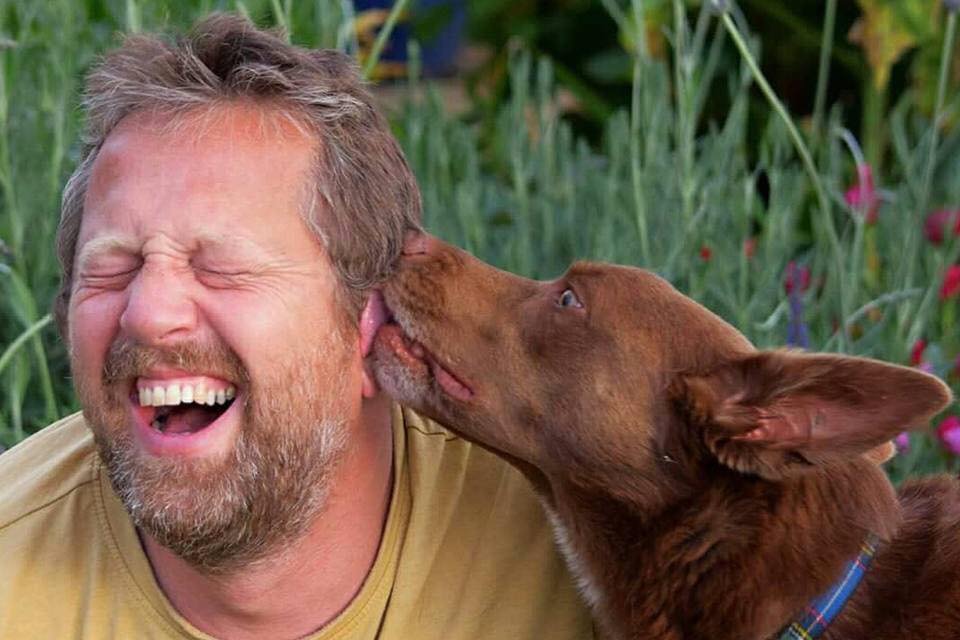Often, we have a picture in our heads about what we wanted when we chose to get a dog and sometimes the reality doesn’t match those expectations.
It can be embarrassing to have a dog that barks or jumps up, or doesn’t come back when called. Especially when you see well-behaved dogs on the street every day, and your social media is full of well trained dogs every time you log on. It’s hard to not feel frustrated or resentful that your dog isn’t like those, despite your best efforts and how much you love them. It can be very overwhelming to think of all of the work that needs to be done to ‘fix’ behaviours our dog does that we don’t like.
But, think of how challenging it is for us to learn new skills or build new habits (many of us are constantly struggling to eat heathier, get up earlier, exercise more regularly, make more time for family, reduce time on social media). There’s a reason why lots of New Year’s resolutions fall through by February. And what’s more, at least we know why we’re making those choices. Our dogs don’t come into our lives hardwired knowing the rules or what’s expected of them - we’re teaching them unnatural, difficult behaviours (i.e. don’t bark, don’t pull, don’t dig, don’t chase) in a language that they don’t speak. It can be frustrating for the both of you as you learn to communicate and work together to build a lasting relationship.
Rome wasn’t built in a day. Our dogs aren’t ‘bad’ on purpose, but they do need guidance and consistency when learning new rules and behaviours. But it’s worth it in the end.

So, if you are feeling overwhelmed by all the things you want to work on with your dog, here are some tips that may help:
- You’re not alone. Many of us have gone through something similar to a grieving process as we reconcile that our expectations of our lives with a new dog do not meet our reality. Be kind to yourself, and your dog.
- Be patient. You have another species living with you, trying to learn your rules and expectations (this is especially the case for puppies or adolescent dogs).
- Reinforce the good stuff. Think of all the behaviours your dog does that you love (remember them, notice them, reinforce them so they happen more often). We are often very good at noticing the bad, but fail miserably at recognising the good. You’ll be surprised at how quickly progress can be made if you start reinforcing all the good (including just lying quietly).
- Are your expectations realistic? Sometimes your dog’s age, breed or home set up can make it hard for them to succeed. You’re dealing with physical and mental developmental stages (puppyhood and adolescence) where you may feel that you’re not getting much back, regardless of how much effort you put in. This is also normal, keep up the awesome work, it’ll pay off in the long run!
- Dogs make choices that are good for dogs. Dog’s like to eat cat poo or roll in dead things or jump on children – they don’t make good choices if left to their own devices. Manage them around the house or in public until you feel comfortable that they know how to behave in these situations. This could include having them on lead, using more enrichment toys or teaching them to settle for short periods initially. Practice makes perfect.
- Ensure their mental and physical needs are met – dogs need daily walks, frequent freedom and runs off leash (if it’s safe and you feel comfortable letting them off), interactions with some other dogs and people (if they want), mental enrichment through food dispensing toys, nose work/scenting or training with you, and quality time to just chill and be with you by your side.
- You get out what you put in. We all live very busy lives and have all had days where our best intentions to train (or even walk) our dogs didn’t work out. That’s okay, but equally, be aware that regular misses can accumulate and result in unwanted behaviours which aren’t the dog’s fault. Training doesn’t have to be in large blocks of time per day, you’ll make progress with short 1-2min sessions just as easily.
- It’s okay to work on one thing at a time. Think of all the behaviours your dog does that you feel need improvement – pick the absolute top priority and focus on that for the week or month (i.e. jumping up or recall). Focus most of your spare energy and time on training and working with your dog on those solely. You may notice some other behaviours become inconsistent, but you can get them back once you’ve got the priority sorted. Once that is at a level you’re comfortable with, add in the next highest priority and work your way down the list.
- It’s okay to have a work in progress. None of us are perfect in our everyday lives – we all make mistakes and have bad days, and your dog is the same. They are not giving you a hard time on purpose, they’re struggling themselves and the behaviours you see are the symptoms of that.
- Help is available. Contact a qualified force free trainer for help if you need. You can find a list of qualified trainers via the Force Free Trainers List.
